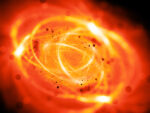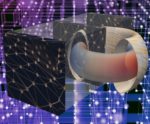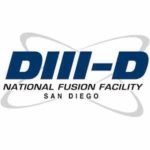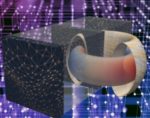Aug. 31, 2023 — Today, the U.S. Department of Energy (DOE) announced $29 million in funding for seven team awards for research in machine learning, artificial intelligence and data resources for fusion energy sciences. The funding is for projects lasting up to three years, with $11 million in Fiscal Year 2023 dollars and outyear funding contingent on […]
DOE Announces $29M for Research on ML, AI and Data Resources for Fusion Energy Sciences
HPC User Forum to Be Held at Princeton April 18-19, Spotlight on High- and Low-Growth HPC Segments
Feb. 6, 2023 — HPC industry analyst firm Hyperion Research announced that the HPC User Forum will hold a conference on Tuesday and Wednesday, April 18-19, at the Princeton, NJ, Marriott at Forrestal. The conference agenda can be found here, more information and registration can be found here. Hyperion Research will provide an HPC market update […]
DOE Announces $33M Funding Opportunity for ML, AI and Data Resources for Fusion Energy Sciences
The DOE SC program in Fusion Energy Sciences (FES) has announced its interest in applications in the areas of machine learning (ML), artificial intelligence (AI) and data resources for fusion energy and plasma sciences. The goal of this FOA is to support multi-disciplinary teams aiming to apply advanced and autonomous algorithms to address high-priority research […]
DOE Announces 18 Public-Private Partnership Awards to Advance Fusion Energy
July 6, 2022 — Today, the U.S. Department of Energy (DOE) announced awards for 18 projects with private industry to enhance collaboration with DOE national laboratories and U.S. universities to take on challenges in fusion energy development. The 18 selected projects include representation from 10 private companies. The full list of planned awards can be […]
PPPL Picked for Public-private Fusion Partnerships
July 15, 2021 — Advanced capabilities ranging from the innovative use of artificial intelligence (AI) to state-of-the-art computer codes have won the U.S. Department of Energy’s (DOE) Princeton Plasma Physics Laboratory (PPPL) its third straight round of DOE-sponsored public-private partnerships to help accelerate the production of fusion energy that powers the sun and stars. The […]
Summit and Theta Supercomputers Power ML Models for Fusion Energy Research
A team led by C.S. Chang at Princeton Plasma Physics Laboratory (PPPL) has used the Oak Ridge Leadership Computing Facility’s (OLCF’s) 200-petaflop Summit and Argonne Leadership Computing Facility’s (ALCF’s) 11.7-petaflop Theta supercomputers, together with a supervised machine learning program called Eureqa, to find….
Scientists Look to Exascale and Deep Learning for Developing Sustainable Fusion Energy
Scientists from Princeton Plasma Physics Laboratory are leading an Aurora ESP project that will leverage AI, deep learning, and exascale computing power to advance fusion energy research. “With a suite of the world’s most powerful path-to-exascale supercomputing resources at their disposal, William Tang and colleagues are developing models of disruption mitigation systems (DMS) to increase warning times and work toward eliminating major interruption of fusion reactions in the production of sustainable clean energy.”
DIII-D Researchers Use Machine Learning to Steer Fusion Plasmas
Researchers at the DIII-D National Fusion Facility achieved a scientific first this month when they used machine learning calculations to automatically prevent fusion plasma disruptions in real time, while simultaneously optimizing the plasma for peak performance. The new experiments are the first of what they expect to be a wave of research in which machine learning–augmented controls could broaden the understanding of fusion plasmas. The work may also help deliver reliable, peak performance operation of future fusion reactors.
AI Approach Points to Bright Future for Fusion Energy
Researchers are using Deep Learning techniques on DOE supercomputers to help develop fusion energy. “Unlike classical machine learning methods, FRNN—the first deep learning code applied to disruption prediction—can analyze data with many different variables such as the plasma current, temperature, and density. Using a combination of recurrent neural networks and convolutional neural networks, FRNN observes thousands of experimental runs called “shots,” both those that led to disruptions and those that did not, to determine which factors cause disruptions.”
Princeton Team using Deep Learning to develop Fusion Energy
Over at the NVIDIA Blog, Tonie Hansen writes that Princeton researchers are using deep learning to help establish the feasibility of delivering fusion energy in the foreseeable future. “The Princeton team has scaled up the capabilities of its FRNN software using thousands of GPUs to train deep neural networks. After successfully running on 6,000 Tesla K20 GPUs on Oak Ridge National Laboratory’s Titan supercomputer, FRNN has recently demonstrated the ability to scale to 3,000 NVIDIA Tesla P100 GPUs on Japan’s new TSUBAME-3 supercomputer at the Tokyo Institute of Technology.”











